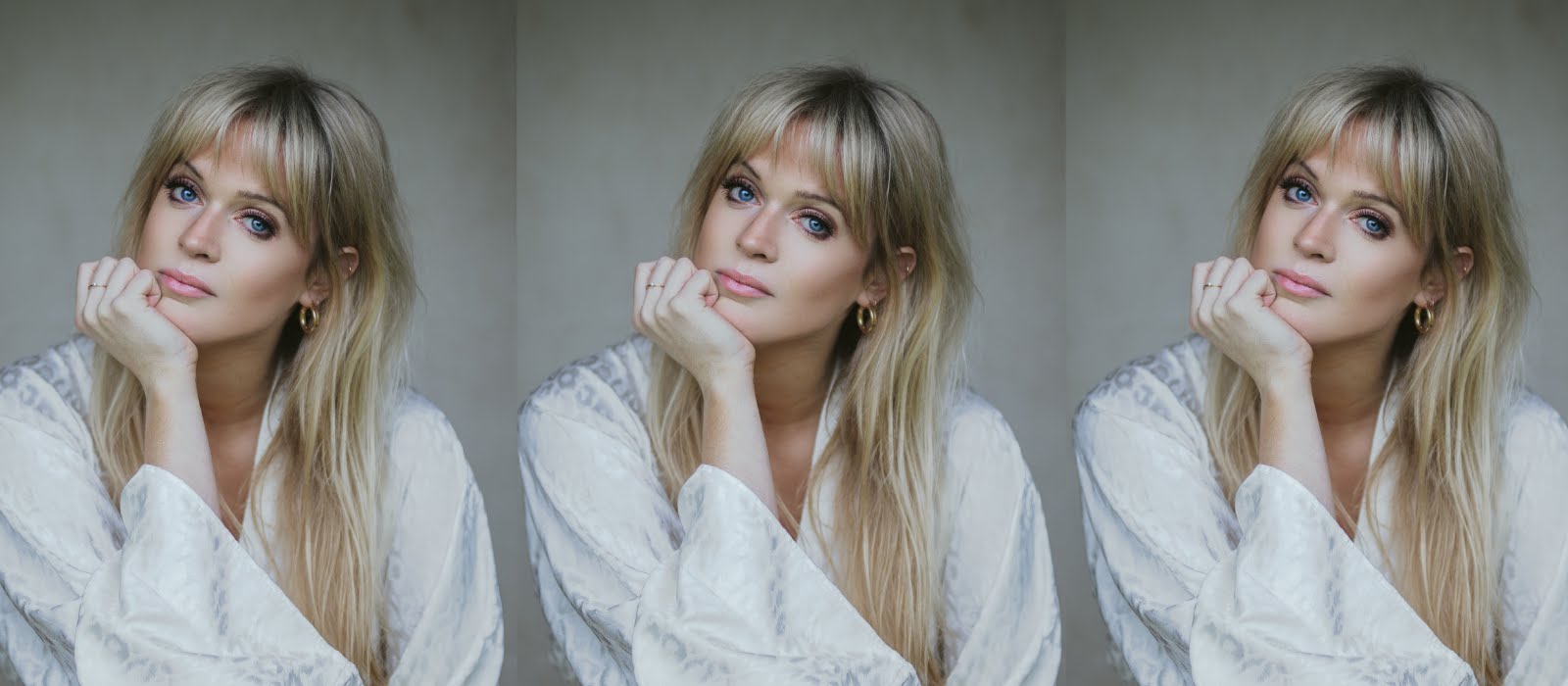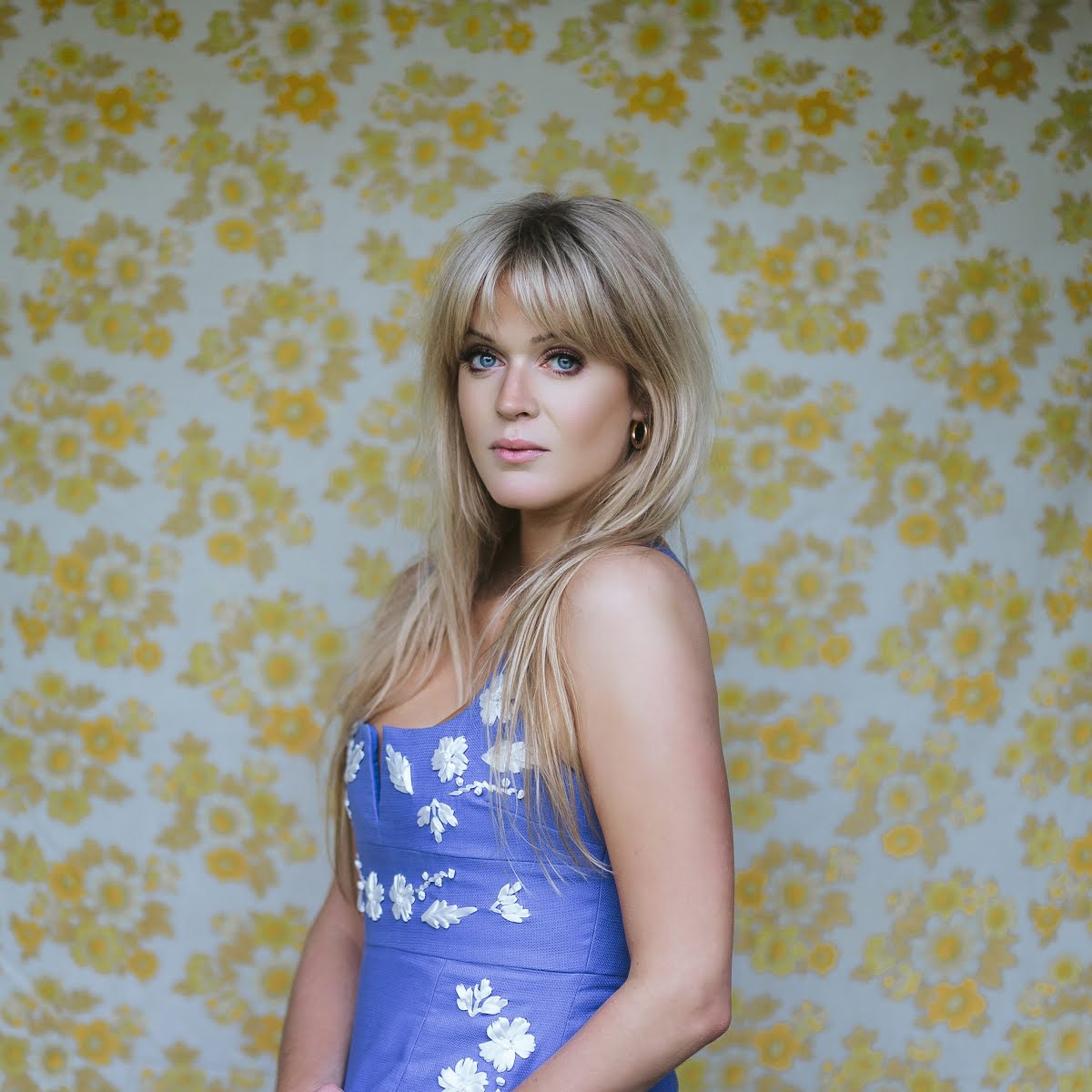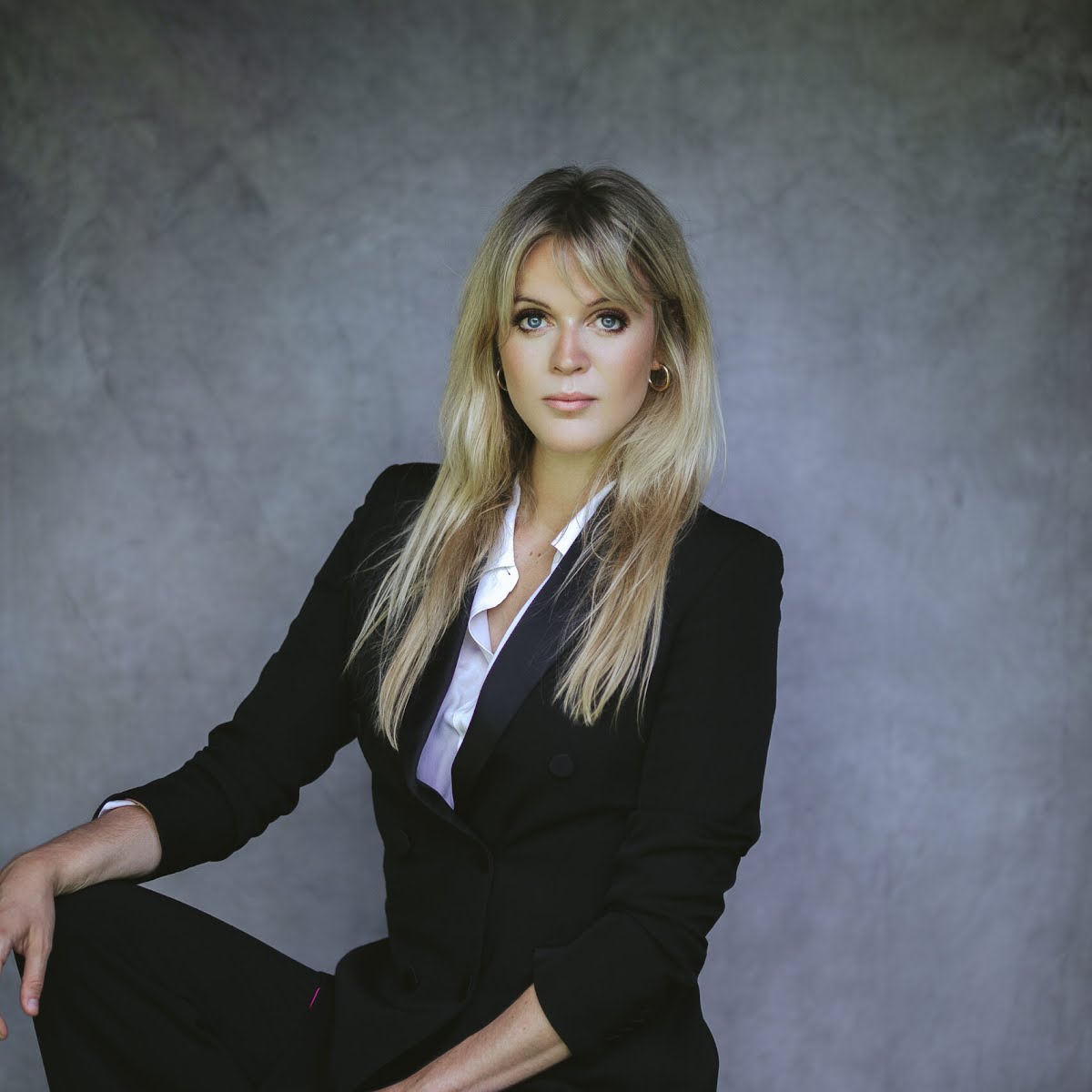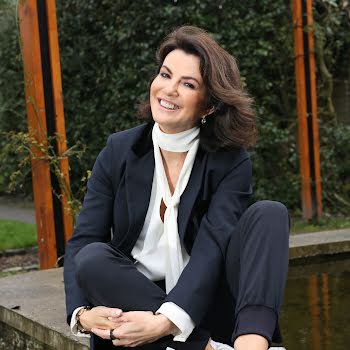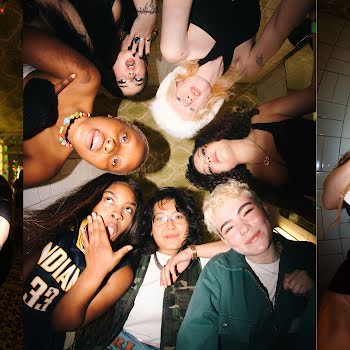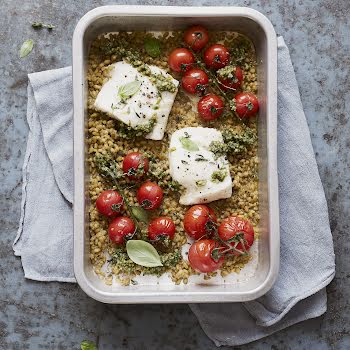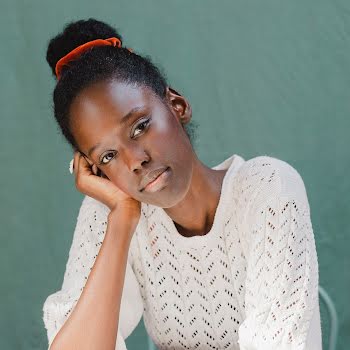Dolly Alderton on heartbreak as an inextricable part of the human experience
A name that’s become synonymous with love, friendship, and relationships over the past ten years, Dolly Alderton is something of a savant when it comes to matters of the heart. Here, Sarah Gill catches up with the author to chat about demystifying men, the lexicon of love, and her newly released novel, Good Material.
“There is a jumper and a shirt hanging on the washing line in my mum’s garden that looks like they’re holding hands in the breeze. I stand at my bedroom window and watch their interplay change with the direction of the wind.”
So begins the opening chapter of Dolly Alderton’s newly released novel, Good Material. Two sentences so completely filled with a fervent belief in the ubiquity of love, inanimate or otherwise, I was instantly absorbed.
From her much-adored memoir and subsequent BBC series, Everything I Know About Love, to her first novel, Ghosts, and weekly advice column, Dolly’s work has resonated with women all over the world, granting those who engage permission to feel the depths and heights of emotion, injecting the seemingly frivolous or mostly mundane with sparkle and substance.
“I’ve always wanted to do a male perspective book at some point,” Dolly tells me over the phone as her cat, Goldie Hawn, ambles about gently in the background. “I’ve always been mystified by men, and I’ve always had an interest in decoding them in both my brain and on the page.”

Good Material begins in the immediate aftermath of a breakup, one which our lovelorn narrator Andy can’t quite wrap his head around. Not only has Dolly shifted perspective from female to male, she’s also flipped the stereotypical post-relationship gender dynamic that we’re used to reading. Andy’s lost, confused, and utterly miserable. He’s floundering in his career as a stand up comedian, has moved in with an eccentric conspiracy theorist, and it doesn’t take long for him to descend into The Madness.
Growing up, Dolly tells me, inspiration was found between the pages of romantic comedy books that were written from the perspective of a male author. Nick Hornby, Tony Parsons, and David Nicholls set the pace for story, but having been raised by ‘men are from Mars, women are from Venus’ rhetoric—“books that talk about men as a homogenised blob of testosterone and maybe five other characteristics”—Dolly was keen to do some investigating and see for herself.
“There was something so exciting to me about investigating what this thing is that I write about all the time—heartbreak, trying to find romantic contentment and fulfillment and peace—from the other side,” she tells me. “As a woman and a human, it felt like an act of empathy. I interviewed a selection of men over 20 hours, and I really wanted to take on the challenge of understanding them and finding that new angle on something that I’ve written about so extensively.”
Dolly wanted Andy to be complex and nuanced, someone who says one thing and means another, someone who that reader can see right through, but who has a ways to go in terms of knowing himself. Sitting down with 13 men to try to gain some insight into the male psyche, a throughline quickly presented itself: They’re all bloody different.
“I think what I realised and understood while writing this book is that men have the exact same capacity for fallibility and hypocrisy and mistakes and obsession and self loathing as women.”
“The number one thing I learned, which will sound so pathetic that it took me 34 years to discover it, is that all men are different. They are individual humans, like all of us. They don’t all react the same way, they don’t all have the same desires,” Dolly says. “That being said, it would be remiss of me not to acknowledge that there were two things that came up in every single interview across the board, and I had to put them into the book.”
Eager not to generalise because Lord knows, not all men, but Dolly couldn’t ignore the stereotypical tropes that were confirmed by her cross section of the male population. “Every single man I spoke to, no matter what their age or background or personality type was, said that in the wake of the breakup, they didn’t feel that they had the space to process those feelings with their friends. They felt that opening up about their heartbreak would either bore their friends or make them uncomfortable, that their dignity would be compromised, or that they would feel pitied. They felt they had to go through the emotional understanding of events on their own.”
“The number one thing I learned, which will sound so pathetic that it took me 34 years to discover it, is that all men are different. They are individual humans, like all of us. They don’t all react the same way, they don’t all have the same desires.”
“The other commonality was that every man, no matter how severe the heart ache or how depressed and obsessed he had been, when asked about sex with a new partner, they all said it was great. When asked if they thought about their ex, everyone said no and that says something about the male brain, but I’m not exactly sure what.”
In Good Material Andy feels so unable to open up and express his feelings with friends that he goes so far as to devise a token system so as not to irk them with too much talk of his suffrage. Changing the shape of masculinity, creating a society where men feel able to be vulnerable is, Dolly believes, is “not just through legislation or cultural changes or how we raise our sons or talk to our boyfriends,” but a revolution by a thousand steps.
“I think what I realised and understood while writing this book is that men have the exact same capacity for fallibility and hypocrisy and mistakes and obsession and self loathing as women. Everything about ourselves that we’re so led to believe is an inherently feminine trait, I now understand that men are exactly the same. Men can go just as mad as women do in romance, in an almost identical way.”
“Every emotion has been felt a billion times by a billion different people, and yet, it always seems like you’re the loneliest person in the world when you’re in the depths of heartbreak.”
Throughout the course of Good Material, many new terms are added to the ever-expanding lexicon of love. The 90/10 rule, The Madness, and The Flip join the ranks of ghosting, gaslighting, and red flags, and I wondered as to why women in particular seek to put word to their experiences in this way?
“For me, it is the most fascinating art,” Dolly says. “When I see those emotions made concrete in language, either with nomenclature or description, it’s the most satisfying experience. When we look at all our favourite albums, films and poems, we know that there is no feeling yet to be discovered. Every emotion has been felt a billion times by a billion different people, and yet, it always seems like you’re the loneliest person in the world when you’re in the depths of heartbreak. That no one has been there before and that no one will be there after you.”
“These terms in modern dating that have such widespread usage now, it ratifies what you’re going through to make you feel less alone and less insane, but it also is really comforting to know that you’re part of a shared experience.”
“When I see those emotions made concrete in language, either with nomenclature or description, it’s the most satisfying experience. For me, it is the most fascinating art.”
The first ever time Dolly Alderton experienced heartbreak, it was her father’s words that acted as a salve. “He gave me a hug and simply said ‘we’ve all been there’. He was in his 60s then, this towering figure of authority, togetherness and reliability, and I remember thinking ‘oh wow, this happened to dad. It happens to everyone’ and there was no greater comfort. You’re part of a tradition of humanity, it’s part of the package deal of human experience, and that makes it so much less painful.”
Heartbreak, Dolly observes, is the worst emotional pain a person can experience throughout their life, aside from being told you’re going to die, or that someone you love is dying. Describing the ache as primal, something that feels like a violation and theft of joy, Dolly reasons that it is by far one of the great unfairnesses of life.
“It’s a horrific experience, to love someone who says they can’t be with you anymore. And yet, on the flip side, it’s one of the great joys of being human, getting to choose who you love and not feeling obliged to be with someone you don’t want to be with. It’s this great unfairness of life that I’ll never be able to get my head around — why do we love people who don’t love us and why do people that we don’t love fall for us? It’s such a malfunction in humans.”
While the story centers around Andy and Jen, Good Material bubbles over with subplots and side characters, showcasing the spectrum of love and loss in myriad ways. There’s Morris, Andy’s landlord, who has been hurt so colossally in his life that he lost trust in the world, and Sophie, an ingénue in her sexual prime leveraging her own powerful energy to be on an even playing field with an older man.
A mother whose husband walked out on her, a friend who sees himself as something of a lothario, a personal trainer hellbent on one-upping her ex — the novel interrogates monogamy, the gendered pressures of aging, and the overhyped excitement of singlehood. “I’ve got about 500 people living in my head who I’ve either met, or imagined, that I know I want to write,” Dolly says of her process on building out the world of this book.
“I wanted this novel to go back to a truth which is that if you look around when you’re heartbroken, everyone around you has been there and gone through it. Throughout the book, Andy is so solipsistic and so engulfed in his own self pity that what he misses—but what the reader gets—is that everyone he comes into contact with has been through what he’s going through.”
A woman who made her name sharing the innermost workings of her mind and serialising her life between columns, podcasts, and social media, Dolly has made the decision to pull back on the personal in pursuit of inner peace. That is not to say, however, that radical honesty cannot exist through works of fiction. “My relationship with writing has always been the easiest relationship of my life. I’ve never had writer’s block, it’s always brought me joy, it’s a very simple, mutual relationship. It’s something I’ve been doing since I was 5, it’s not just a job, it’s how I translate life.”
“I’ve made it through so many things that I thought were life ending, and I’ve come out the other side. Not only have I been fine, I’ve been happier. Every time. That’s the feeling that I wish I could bottle and give to every girl in her 20s.”
“Female, first person life writing is a very distinguished tradition and I think it’s very f*cking brave. I’m so in awe of women who do it, and do it again. I think it’s a great service. I wasn’t strong enough to keep doing it, but the memoirist is still in me,” Dolly says. “If you’ve been oversharing about your life online, that instinct never goes away. I still have dreams of being 75 and really not giving a sh*t about anything any more and writing another memoir.”
A woman whose own unquenchable curiosity about the world we live in—and the ways in which we live in it—has yielded great wisdom, Dolly is always happy to pass on her insights. So naturally, as someone currently in the trenches that are mid-20s, I had to ask this agony aunt extraordinaire for some advice. For Dolly, the words came easy:
“Things take time, things take so much longer than you think they’re going to take. Don’t worry about saving money, particularly if you’re living in a city. No one can save money unless they’ve been bought a flat by their parents.”
“I think the biggest challenge of being in your 20s, your first decade of adulthood, is that stuff goes wrong for the first time. When you’re growing up and still in school, the sign that everything is going right is that everything is staying the same. What you have to acclimatise to in adulthood is that not only is change expected, it’s good. Being in my 30s now, my second decade of adulthood, one of the best things is that nothing seems like a disaster any more. It doesn’t mean that things don’t go wrong, but age gives you the privilege of perspective. I know that I’ve made it through so many things that I thought were life ending, and I’ve come out the other side. Not only have I been fine, I’ve been happier. Every time. That’s the feeling that I wish I could bottle and give to every girl in her 20s.”
‘Good Material’ by Dolly Alderton is on sale now
Photography via Alexandra Cameron











